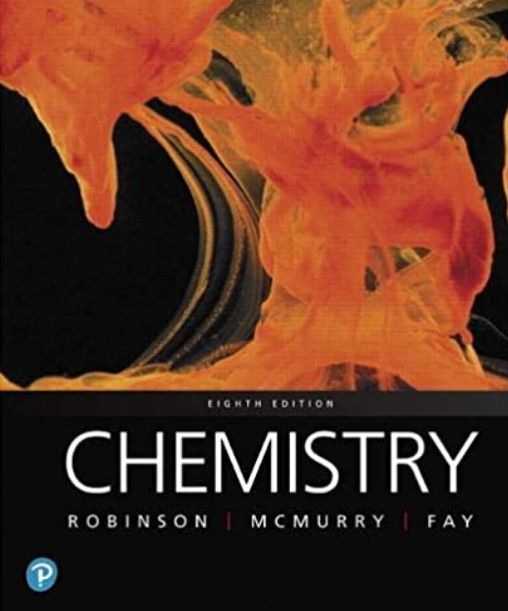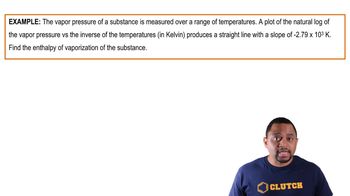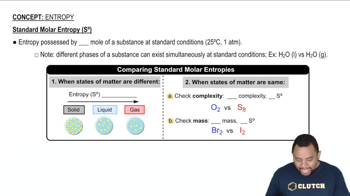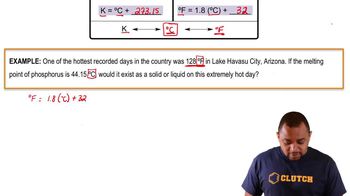Textbook Question
Suppose that a reaction has ΔH = - 33 kJ and ΔS = - 58 J>K. At what temperature will it change from spontaneous to nonspontaneous?

 McMurry 8th Edition
McMurry 8th Edition Ch.18 - Thermodynamics: Entropy, Free Energy & Equilibrium
Ch.18 - Thermodynamics: Entropy, Free Energy & Equilibrium Problem 139
Problem 139 Verified step by step guidance
Verified step by step guidance



The lead storage battery uses the reaction: (b) Calculate ∆G for this reaction on a cold winter's day (10 °F) in a battery that has run down to the point where the sulfuric acid concentration is only 0.100 M.
Consider the unbalanced equation: (a) Balance the equation for this reaction in basic solution.
Consider the unbalanced equation: (b) Use the data in Appendix B and ΔG°f for IO3-(aq)= -128.0 kJ/mol to calculate ΔG° for the reaction at 25 °C.
Consider the unbalanced equation: I2(s) → I-(aq) + IO3-(aq) (d) What pH is required for the reaction to be at equilibrium at 25°C when [I-] = 0.10M and [IO3-] = 0.50 M?